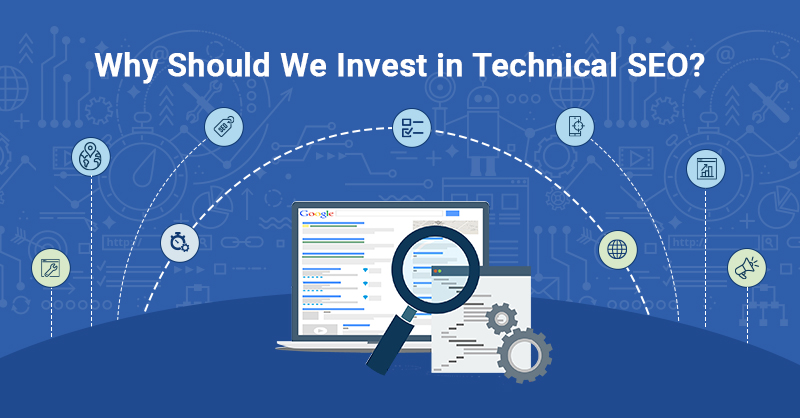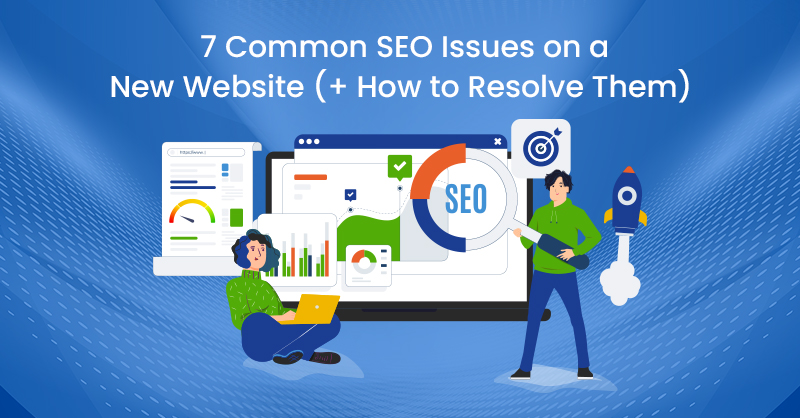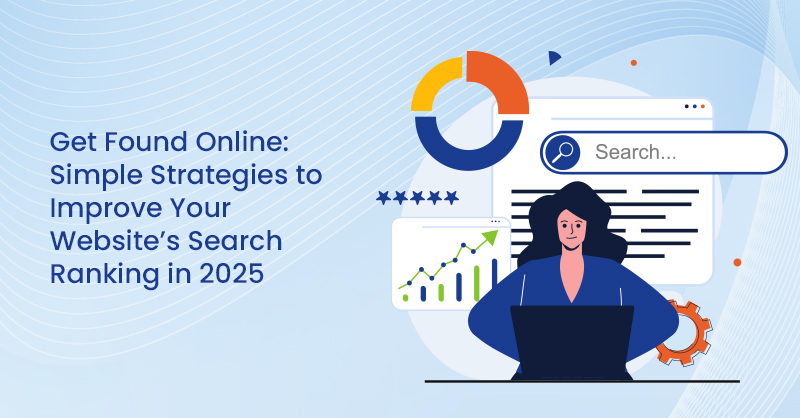No SEO strategy can stand without a strong backbone. It’s useful to think of technical SEO as the foundation of your search engine optimization strategy. Without it, everything else falls apart.
In this article, we’ll share why technical SEO is essential and how it can help optimize your website. This blog is for readers who practice SEO and are looking for additional ways to reach top Google results.
What is technical SEO?
Technical SEO refers to improving the technical aspects of a website to increase the ranking of its pages in the search engines. It describes the efforts of a user to ensure their website is compatible with search engine guidelines. This is so it can be indexed and crawled without a hitch.
Although technical SEO is not as time-consuming as other ongoing optimization like link building, if you get it wrong, you can ruin the performance of your website in search rankings fairly quickly.
So, what are these technical factors? Here are a few of the most basic ones you need to help search engines crawl and index your site.
Fast Website Speed
Page speed refers to how fast the content on your page loads. Speed is considered a significant ranking factor by Google. A fast loading website is more likely to get a better search ranking. If your website is slow, people get frustrated, which in turn increases the bounce rate of your site. An increase in the bounce rate will result in fewer business sales.
Here are some reasons why your site speed might be slow:
- Your images are poorly optimized for web
- There is no content compression
- The pages have too many CSS image requests
- Your website web host is slow
- You have a complicated page template with too many plugins
- Your website is not caching information
If your website is slow, Google may dock you. On the other hand, if you offer quick loading, you could climb higher in the search results.
Google’s Page Insights is a useful tool used to find out if there is an issue with the loading of the site.

Crawlability & Indexation
Search engines use bots to crawl or spider your website.
Two important things you should make sure of are:
- Make sure you have an XML sitemap and that your web pages are all indexed. If Google can’t read a sitemap, then it won’t even know your site exists.Submit the sitemap to the search engines.
- Once you’re done submitting the sitemap in GSC, the search engine should be able to index your pages.
If an error occurs, it means that Google didn’t crawl your pages. A crawl error occurs when a search engine tries to reach a page on your website but fails. If they’re not crawled, they will not appear on the search results. Even with the best content, your traffic will be nonexistent if you don’t show up on the search results page.
Regularly monitor the Coverage and Crawl reports in the Google Search Console so you can easily spot and resolve indexing and crawling issues.

Robots.txt
You can give the bots directions on your site by using the robots.txt file. It will tell the search engine which parts or pages of the site to crawl and which pages not to crawl.
Meta Robots Tag
Not every page needs indexing. Such pages could include coming soon pages, blog category pages, and thank-you pages. If you want search engine bots to crawl a page, but keep it out of the search results, you can tell them with the robots meta tag.
Don’t confuse search engines with Duplicate Content
If you have the same content on multiple pages of your site, then the search engine will penalize the site. To avoid duplication, you need to differentiate one page from the other using the heading tags, title, and meta description.
Different URLs can show the same content due to technical reasons, and you won't even know the issue exists. For a visitor, this doesn't make any difference, but for the search engine, it will see the same content on a different URL.
Canonicalization is the best way to eliminate duplicate content in the URL. It's the process of choosing a preferred URL when there are several choices for an individual page.
![]()
With the Yoast SEO plugin, you can easily set a canonical URL for a page. And, to make it much easier, Yoast SEO also adds self-referencing canonical links to all your pages. This will help prevent duplicate content issues that you otherwise might not have been aware of.
There is also a possibility that you can have duplicate content from another website. Unfortunately, the bots can't figure out who plagiarized, so Google will penalize both of you.
To avoid penalties, you can use Copyscape to make sure you don't have content similar to any other web page.

Find & Fix your Dead Links
We’ve already discussed in the article that slow websites are frustrating. What could be even more annoying for a visitor than a slow loading page? Landing on a page that doesn’t even exist!
Search engines don’t like to find these error pages either. And, they manage to find more dead links than the visitors because they follow every link they crash into, even if it’s hidden. Unfortunately, most sites have at least a few dead links. It’s easy to end up with a broken link as you could have external links to pages that have been moved or shut down.
So how do you find them fast and fix them before they impact your visitors and rankings? Fortunately, there are tools that can help reclaim broken links on your site.
Tool #1 – Dr. Link Check: If you’re ever in need of a tool that can quickly have a link audit completed, this is it.

Tool #2 – Check My Links Chrome extension: This extension is an alternative option to Dr. Link Check. Simply click on the icon and the tool scans the links on the page.

To prevent unnecessary dead links on your site, you should always redirect the URL of a page when you move or delete it. It would be ideal to redirect it to a page that replaces the old page.
Conclusion
Technical SEO is not the end-all of Search Engine Optimization. You need more to succeed, but if you have the technical SEO covered, that makes everything else easier. It won’t matter how good your on-page is if you fail at technical SEO. It also won’t matter how amazing you are at off-page if you’re awful at the technical stuff.
Make sure the technical SEO is the best it can be and you’ll be set to win with your on-page and off-page SEO.







on
Hey! I read your article and it is very informative article, it provides information,
Thanks for such an amazing content.
on
SEO works.
This is very important because traffic equals leads and leads turn into sales. By investing in SEO and raising your rankings in Google you’ll send more traffic to your website which can generate to more leads and sales for your business.